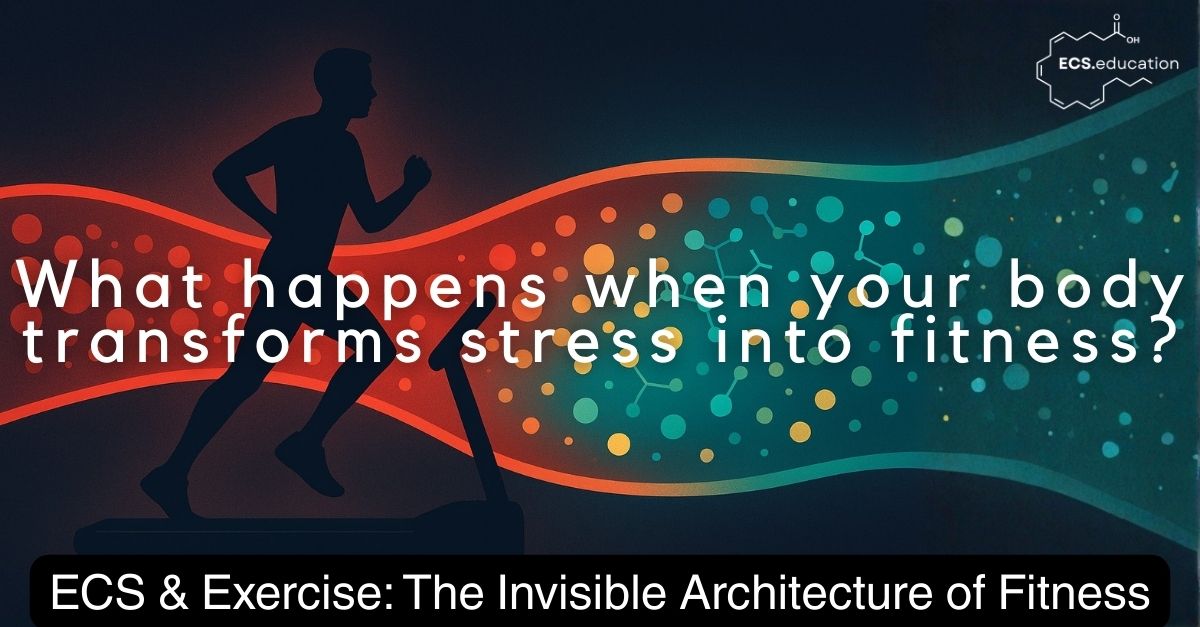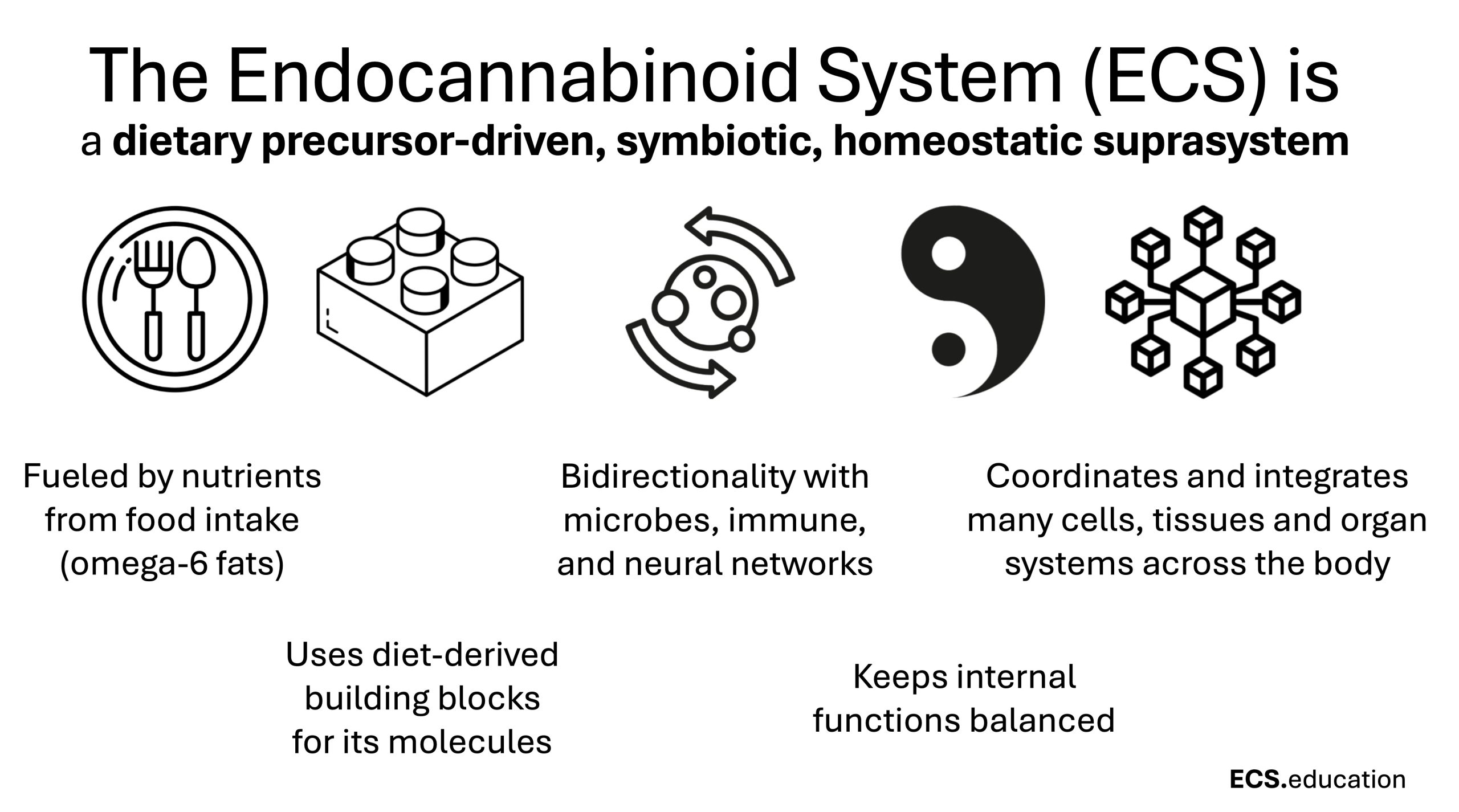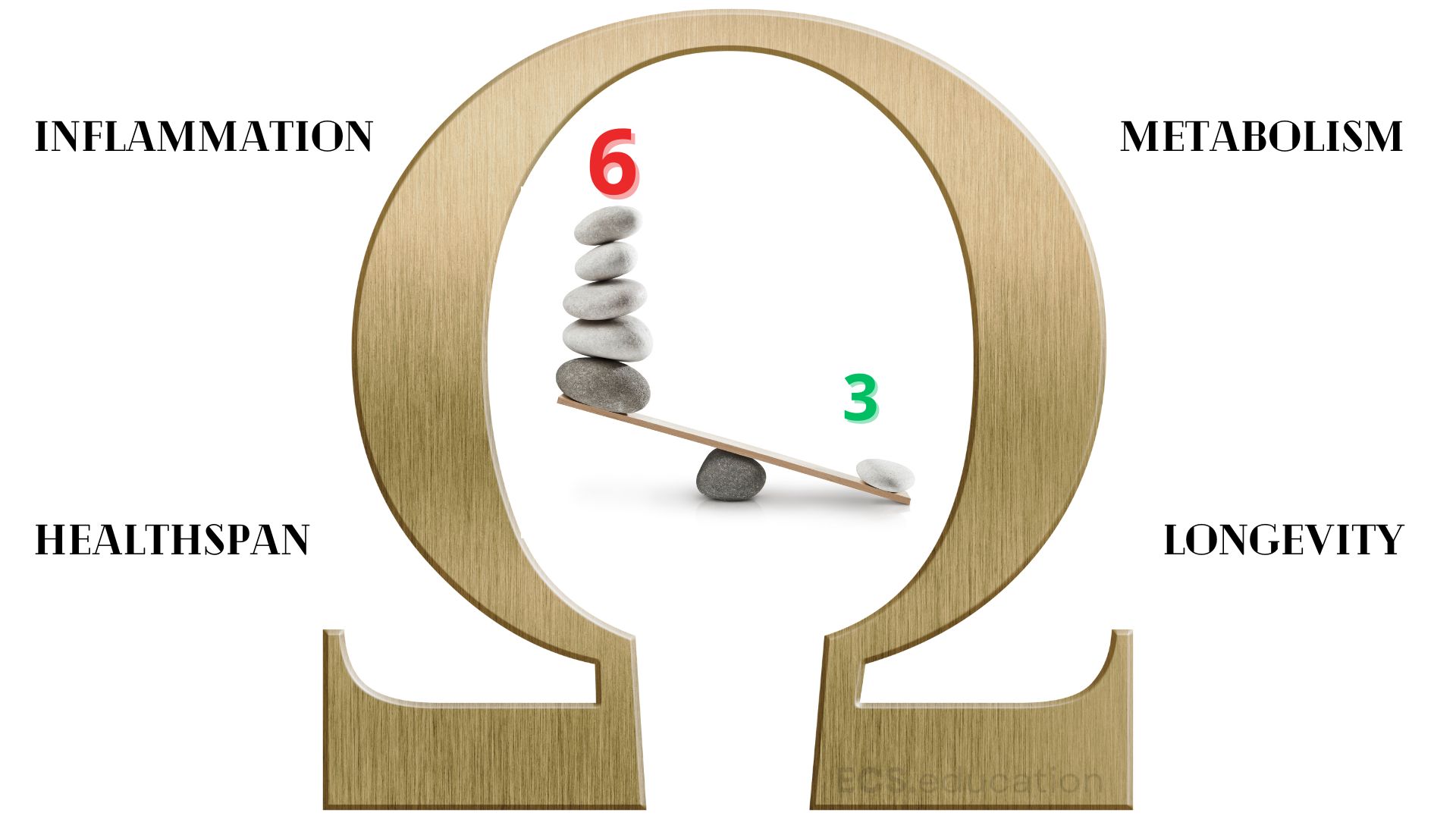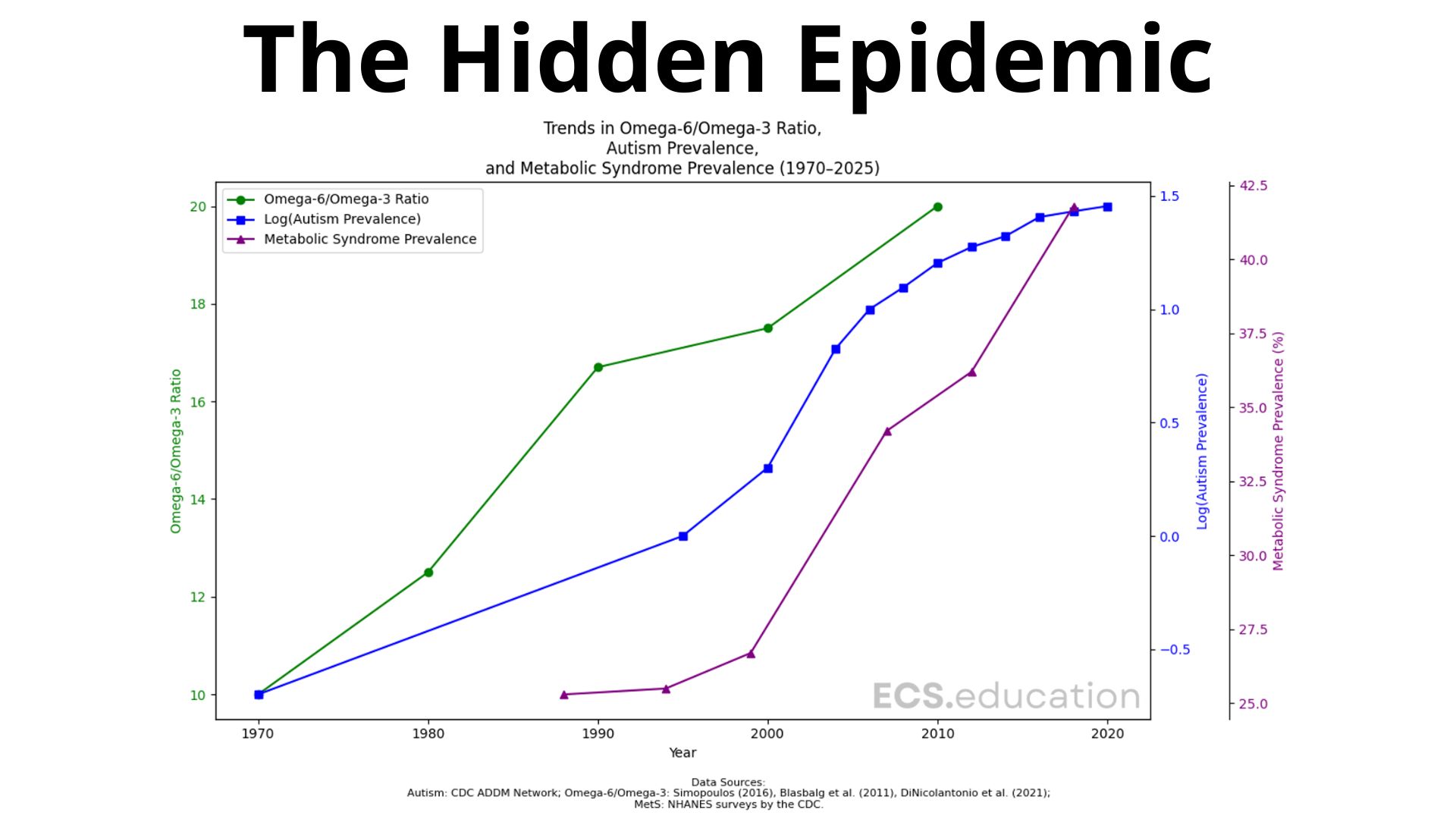This article explains how the endocannabinoid system is shaped by diet, especially omega‑6 and omega‑3 fats. The 2025–2030 US Dietary Guidelines process is quietly doing something profound. On the surface, it might look like another technical update about fat intake, unsaturated oils, and seafood recommendations. But underneath that familiar language sits…
Tag: physiology

ECS and Exercise: The Invisible Architecture of Fitness
The body keeps secrets in its blood. On a Tuesday morning in late 2024, 491 men and women stepped onto treadmills and cycle ergometers across several research institutions. None of them knew they were about to reveal something profound about the mechanics of human fitness. They simply pushed themselves toward…

The Biochemical Plateau: Rethinking Linoleic Acid and Heart Health
The Linoleic Acid Paradox: Protection or Peril? For decades, linoleic acid has enjoyed a privileged place in nutritional policy. It is the cornerstone of “heart-healthy” messaging, the molecular mascot of seed oils, and the quiet passenger in countless processed foods. But beneath this reputation lies a paradox: the very molecule…

The Enzyme Inhibitor Paradox: Why Anti-Obesity Drugs Keep Failing
A new study just proved something remarkable: researchers found a way to slash insulin levels by 53% in just two hours. Food intake dropped 23%. Body weight fell within 24 hours. The pharmaceutical industry should be celebrating. Except there’s a problem. By day seven, it stopped working. Completely. The mice…

The Endocannabinoid System: Dietary Precursor-Driven ECS & Medical Education Gap
The Misunderstood Master Regulator The endocannabinoid system (ECS) is often considered the “cannabis system,” but this label ignores its true—and far broader and more important—role in holistic health. Instead of being defined by external substances, the ECS is a dietary precursor-driven, symbiotic, homeostatic suprasystem: a dynamic physiological network that maintains body-wide…

Obesity Rewires Your Endocannabinoid System (ECS): How Fat, Liver, Heart & Brain Are Transformed
Obesity is more than excess fat—it’s a disorder of endocannabinoid system (ECS) dysfunction. Explore how obesity rewires CB1 signaling in fat, liver, heart, and brain, driving chronic disease.

Dietary Omega-3/6 Balance: New Research Links Fatty Acid Ratios to Chronic Disease and Longevity
New research reveals countries with high omega-3 consumption enjoy 2.63 extra years of healthy life expectancy compared to nations with typical Western diets. Groundbreaking clinical evidence shows omega-6 fatty acids increase inflammatory markers while omega-3s counteract these effects. Your starting omega-3/6 baseline significantly impacts how your body responds to dietary interventions, offering new insights for personalized nutrition approaches.

The Hidden Epidemic: ECS Dysfunction at the Crossroads of Autism and Obesity
Explore how modern diets rich in omega-6 fatty acids may disrupt the endocannabinoid system (ECS), linking autism spectrum disorder (ASD) and metabolic syndrome through shared mechanisms of inflammation, neurodevelopment, and metabolism.
The Missing Link in Medicine: How the Endocannabinoid System (ECS) could Revolutionize Healthcare
Why isn’t the endocannabinoid system (ECS) taught in medical schools? This ancient system regulates hunger, pain, metabolism, and immunity—and it’s under attack from processed foods and outdated education. Learn how omega-6 fats disrupt the ECS, drive chronic disease, and what we can do to fix healthcare. Share this video to…

Challenging the Daily Mail: The Science Behind Medical Cannabis for ADHD and Menopause
Professor Sir Robin Murray’s claim that ‘cannabis has the same effect as drinking a pint’ for psychological conditions, published in the Daily Mail, oversimplifies the science behind medical cannabis. This commentary explores the evidence supporting cannabis as a therapeutic option for ADHD and menopause while addressing misconceptions about its efficacy and safety.

